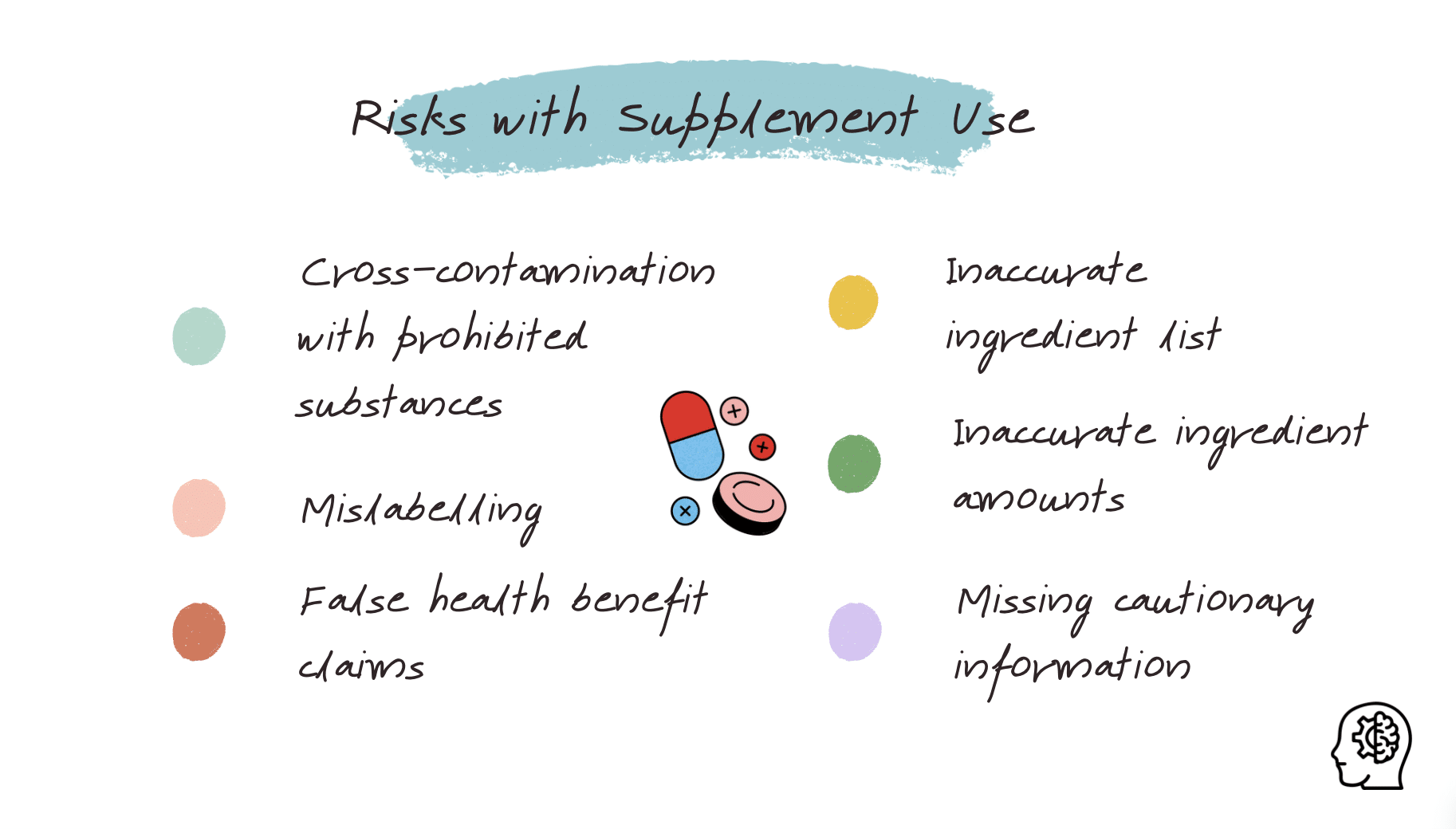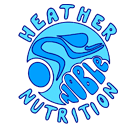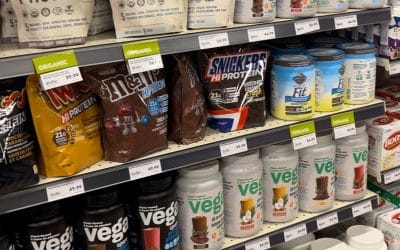According to the Canadian Centre for Ethics in Sport, 87% of athletes say they use supplements. 19% of athletes get their advice from family and friends, 13.5% from strength trainers, and 10.8% from their teammates. A mere 4% of athletes ask their doctors and 0.8% consult a Registered Dietitian.
There are many cases where supplements can be extremely useful, such as for correcting nutrient deficiencies, supporting diets that limit specific nutrients (e.g. vegan, lactose intolerance), and certain medical conditions. Make sure you discuss taking supplements with a medical professional and help you determine whether the potential benefits outweigh the risks.
When it comes to sport supplements, studies have shown that certain sports supplements (e.g. caffeine, beta-alanine, creatine, nitrates, etc.) can lead to a 1-3% improvement in various types of athletic performance (e.g. strength, endurance, sprint). When we compare this to all the other factors that influence performance, including sleep, training, quality of diet, recovery, motivation, mental health, equipment, access to coaching, social support, funding etc., sports supplements are simply the tip of the iceberg. We are drawn to taking supplements because they are easy, convenient, and why wouldn’t you want to potentially improve your performance by 1-3%? However, it is very easy to overlook their risks.
What are supplements?
Supplements fall in a special category, as they are not classified as food or drugs and are not regulated by the Canadian Food and Drugs Act. Supplements are also known as natural health products or dietary supplements.
What are some examples?
- Vitamins and minerals, e.g., Niacin, vitamin C, B12
- Herbal remedies, e.g., St. John’s Wort, echinacea, Turmeric, Elderberry, activated charcoal, glucosamine, collagen
- Homeopathic supplements, e.g., ignatia, arnica, Magnesia Phosphorica
- Probiotics, e.g., lactobacillus
- Amino acids and essential fatty acids, e.g., arginine, taurine, omega-3, Branched-Chain Amino Acids (BCAAs), Conjugated linoleic acid (CLA)
- Protein powders, e.g., whey, soy, pea, casein
- Weight-loss products, e.g., Hydroxycut, green tea extract, Garcinia Cambogia
- Mass Gainers, e.g., HMB, Mass Gainer
- Sports supplements, e.g. sports gels, powders, carb drink mixes, energy bars, Creatine, Pre-workout, Beta-Alanine
What are some risks with supplement use?
Athletes subject to testing for banned substances, regulated through the World Anti-Doping Agency (WADA), need to be extra careful when choosing sports supplements. Regardless of how a prohibited substance gets into an athlete’s body, a positive test results in very serious consequences and can be devastating to an athlete’s career.
Contrary to the food and drug production, the supplement industry has very little government regulation and poses unique risks to consumers. With little regulation and testing, this poses more opportunity for false claims, contamination, mislabelling, and more. The image below shows some of the many risks with supplement use.

What are quality assurance programs?
Informed choice and Informed Sport are global quality assurance programs. They test for banned substances and impurities in sport supplement products. Both programs use the same testing procedures and technologies, and test for all WADA banned substances. Informed choice randomly samples supplement batches and undergoes intensive checks and testing, whereas Informed Sport tests every single batch before appearing on the market.


NSF International Certified for Sport is another global quality assurance program that provides independent testing and product certification for dietary supplements. NSF International Certified for Sport ensures that all certified products do not contain unsafe levels of contaminants, any prohibited substances, masking agents, and that the products’ contents accurately match what is written on the label. Look for these quality assurance logos on supplements! Consumers can also search on their respective websites (please see links below) for specific brands and supplements to view which are certified and safe to use.
How can you minimize your risks?
- Work with a Medical Professional or Sports Dietitian for guidance when considering sports supplements. Professionals are here to help you make smart and safe decisions and will provide you with evidence-based recommendations for supplements that may have ergogenic potential in your sport.
- Use certified programs such as Informed Sport and NSF Certified for Sport, designed to help you make safer decisions.
- Do your own research! Check out the links below for some more information on sports supplements.
Some additional resources:
- World Anti-Doping Authority (WADA): https://www.wada-ama.org/
- Canadian Centre for Ethics in Sport (CCES): http://cces.ca/anti-doping
- Informed Sport: http://www.informed-sport.com/
- NSF International Certified for Sport: https://www.nsfsport.com/certified-products/




